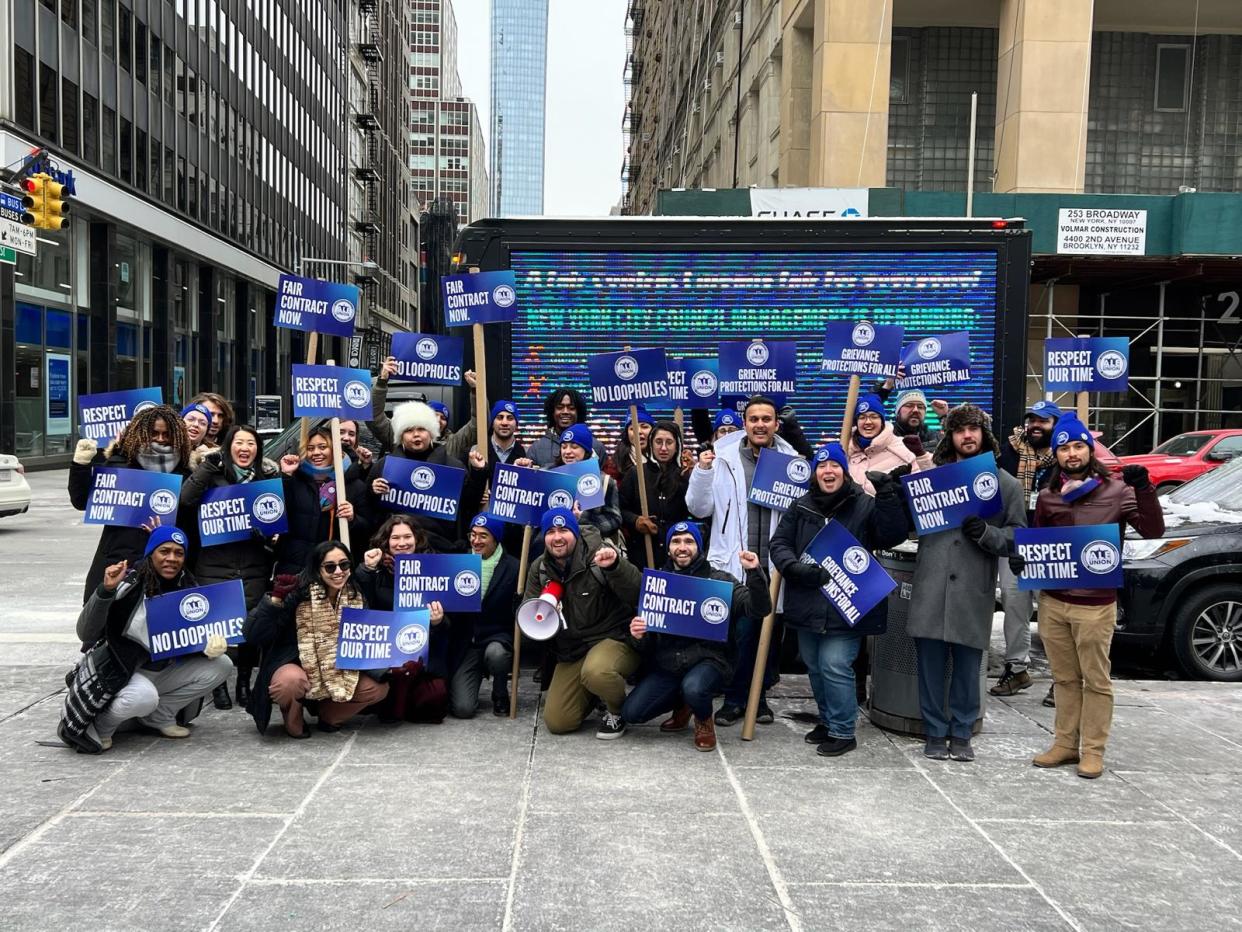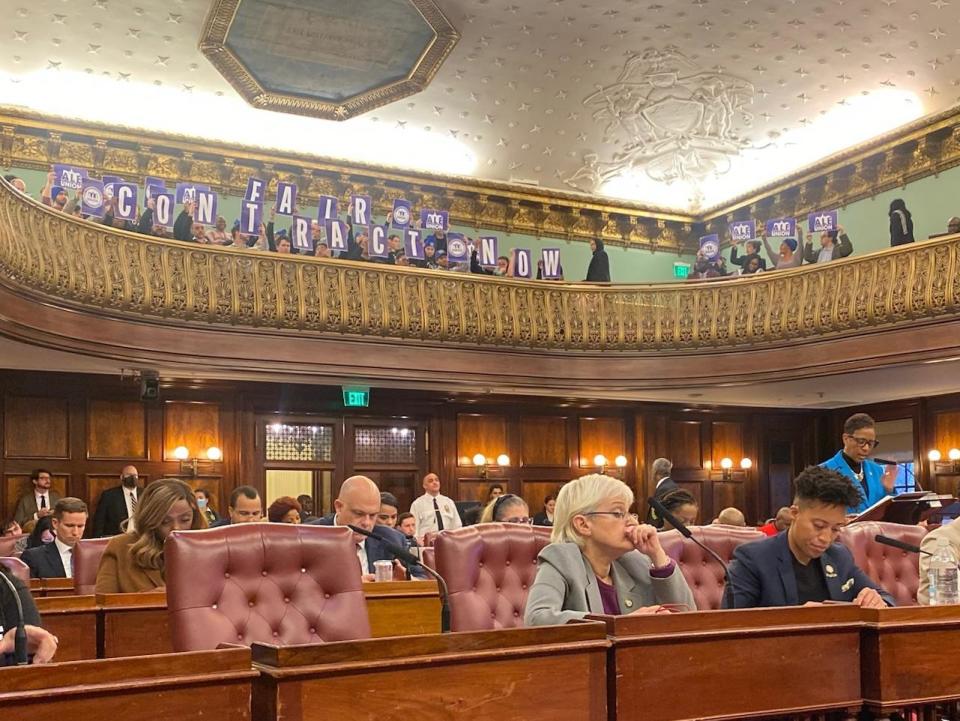Legislative Staffers Are Unionizing to Hold Lawmakers Accountable

After nearly a decade of organizing and two years of bargaining, hundreds of unionized employees at the New York City Council recently ratified their first contract with the 51-member council and New York City. The contract will end poverty wages at the city council by establishing a minimum salary and scheduled wage increases. Employees will finally have access to grievance and overtime policies, and will no longer be subject to on-the-spot firings.
This hard-won agreement represents a sea change, shifting the power dynamics between the people who pass legislation and approve the municipal budget of the largest city in the United States and the people who work for them. Staffers have said loud and clear: Enough is enough. The exploitation, harassment, and abuse have to stop. Even powerful people must be held accountable.
The New York City Council staff contract is now the third of its kind, coming after collective bargaining agreements were reached with the Oregon State Legislature and the office of former Congressmember Andrew Levin. Union organizing among legislative employees is accelerating throughout the country. We are seeing it at every level of government, including the New York and Los Angeles city councils, the New York, Oregon, Illinois, California, and Massachusetts state legislatures, and throughout Congress.
Legislative workers are part of an ongoing and historic wave of union organizing across the US. Because their employers wield extraordinary power in society, the efforts of legislative staffers to build unions and defend their rights has been especially instructive.

When New York City Council employees began organizing, they were told it might not be possible, let alone legal, for legislative staffers to unionize. They discovered that many established unions were at first reluctant to work with them because the unions did not want to disrupt their own relationships with local politicians.
But workers felt they had no other option. In the more than 30-year history of the modern New York City Council, its employees have largely been invisible and powerless. Stories of bullying, abuse, sexual misconduct, and unchecked discipline have piled up alongside the usual challenges of long hours and low pay.
As with other legislative staffers, most council employees serve the public directly, providing essential constituent services, drafting bills, researching policy, analyzing municipal spending, and assisting community groups. Despite their contributions to the council and New York City, staffers felt the expectation was that if they did not like their working conditions, they should leave.
Instead, the staffers decided to transform their workplace. Through teamwork, democracy, and determination (and despite the pandemic), council employees built an independent union from the ground up, forming New York City’s first new municipal union in 50 years. They emphasized rank-and-file leadership with minimal bureaucracy, strategic staff, and legal support. Across 51 council offices and one division, they painstakingly signed up members, one by one. Each new member made a financial commitment, paying 1% of their salary in pre-contract dues to fund the union’s organizing efforts.

The union established open channels of communication for its members through a democratically elected (one member, one vote) executive board, bargaining committee, and office shop stewards. It fostered community and supported members through social events, direct actions, and an active social media presence. And it built strong allies within the city’s labor movement, who then publicly supported council staff during contract negotiations.
In April, New York City Council staffers ratified their first contract, with an overwhelming 95% voting yes. One of the contract’s greatest achievements is that it almost doubles the minimum salary of member aides, from $30,000 to $55,000, and further to $58,500 in 2025. This is a life-changing salary increase for the lowest paid staff. Perhaps even more important, though, the contract asserts the dignity and value of every employee.
Through the very nature of their work, legislative workers are deeply embedded in the communities they serve. By unionizing within the corridors of power, they have not only demonstrated they are capable of winning better working conditions for themselves, but their experience offers an invaluable window into how democratic movements can push the boundaries of power for the better.
Now is the time for legislative staffers across our country to strengthen existing organizing efforts and begin new ones.
Stay up-to-date with the politics team. Sign up for the Teen Vogue Take
Originally Appeared on Teen Vogue
Want more labor coverage?

